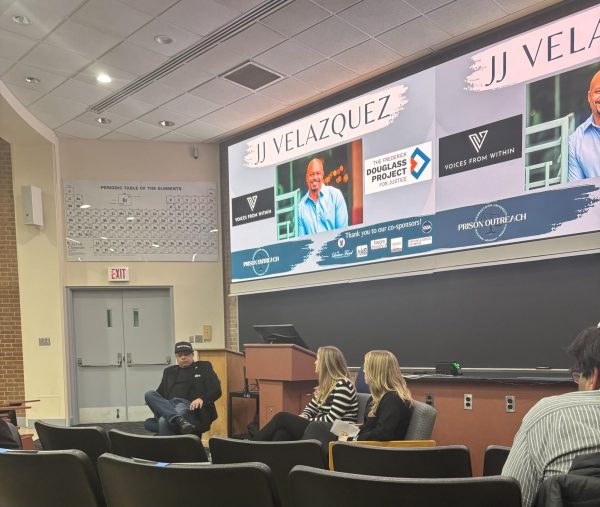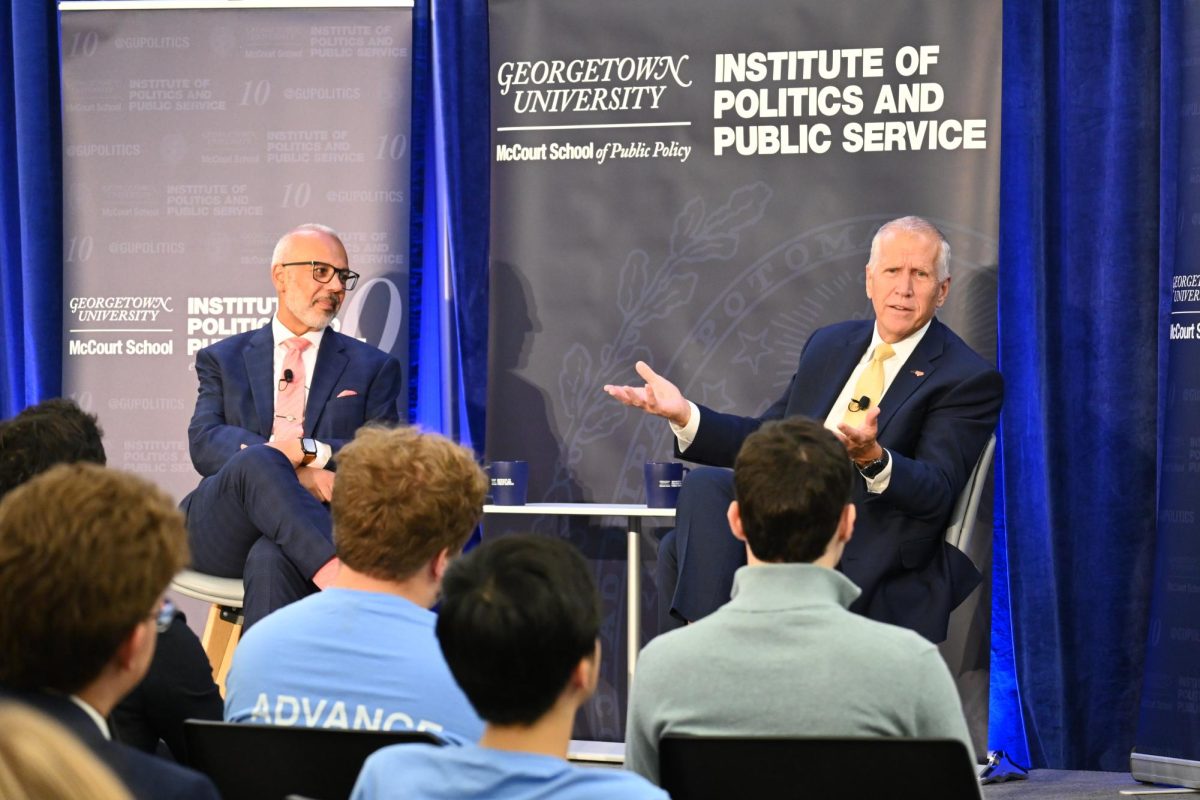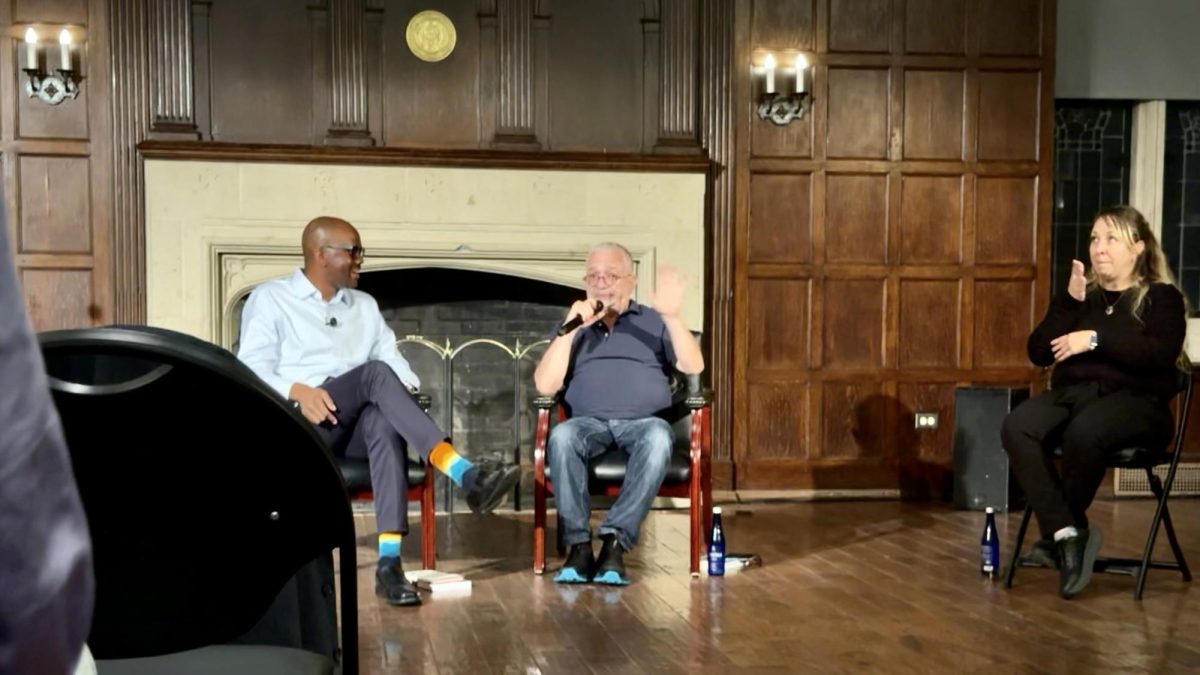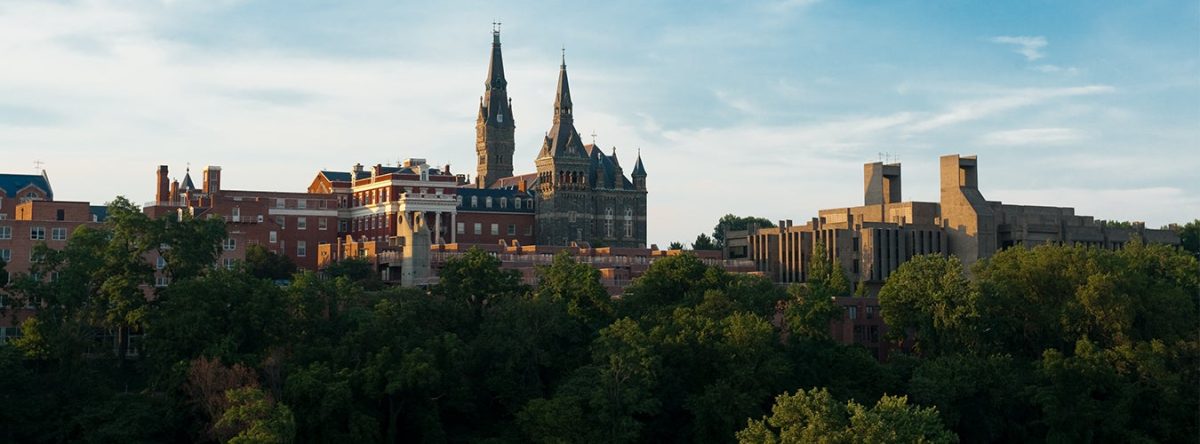An exoneree and advocate for prison reform called for increased activism to combat wrongful convictions during a talk at Georgetown University on Dec. 4.
Jon-Adrian “JJ” Velazquez, who was exonerated in Sept. 2024 after serving nearly 24 years for a crime he did not commit, shared his experience in prison, the injustices he faced and his efforts both inside prison and after his exoneration to advocate for policy change. The event was sponsored by Georgetown University Prison Outreach (GUPO), a student-run organization that runs educational programming in Washington, D.C.-Maryland-Virginia area jails and sponsors prison reform events.
Velazquez said his path to exoneration inspired him to become a justice reform advocate and found Voices From Within, an organization that amplifies the stories of incarcerated individuals.
“While I was incarcerated, I was fighting for myself but also seeing other individuals fighting for themselves who didn’t have the capacity or the platform that I had, and I realized, I think this individual is even in a better position to be released,” Velazquez said at the event. “When you come in close proximity with an individual who is suffering based on wrongful conviction, it’s difficult for you to turn your back on that.”
Marc Howard (LAW ’12), the director of the Georgetown Prisons and Justice Initiative (PJI), an organization that focuses on addressing mass incarceration through research and education opportunities for incarcerated individuals, and a cosponsor of the event, said Velazquez was a leader while working toward exoneration.
“What JJ endured with 24 years of wrongful incarceration in a maximum security prison, where he got a bachelor’s degree and a master’s degree, shows a level of resilience that’s so inspiring,” Howard said at the event. “He became a leader inside, working to represent and support other men, five of whom were exonerated before he was actually released from prison.”

Approximately 1.9 million people are incarcerated in the United States. Many experts believe that around 2.5 to 5%, or an upwards of 110,000 of those individuals, are wrongfully convicted. As of February 2024, there have been 3,478 exonerations and 31,678 years lost in prison, which averages 9.1 years per exoneree.
Velazquez said nothing makes up for the time lost while incarcerated.
“I left my children at the ages of three-and-a-half years old and five weeks, and I came home to them at 27 and 24,” Velazquez said at the event. “There’s nothing that they can do to give me back my time that I’ve lost, and nothing that they can do to repair the harm that my family endured.”
“And so when we look at what’s at stake, it’s not just the individuals who are wrongfully convicted, it’s the communities that they came from, it’s the families that they belong to, it’s everyone,” Velazquez added. “There’s collateral damage here.”
Velazquez also said that legal and prison systems in the United States are inherently flawed, highlighting discrimination and the lack of support when incarcerated individuals leave jail.
“Justice cannot exist in this world when we have individuals who are wrongfully convicted, when we have individuals who are being discriminated against based on the fact that they may not have enough money to protect themselves, or they may be of the wrong complexion or come from the wrong neighborhood,” Velazquez said.
“And then after they get out, the average person that comes home from prison can get their hands on drugs or a gun before they can get themselves employed or get stable housing, and that’s why the recidivism rate is so high,” Velazquez added.
Katherine Fisher (CAS ’28), who attended the event, said listening to Velazquez’s story broadened her horizons to the injustices of the system.
“I think the unfairness of the prison system is just something that’s not talked about as much as it should be, and especially hearing the perspective of somebody who was very heavily involved in the system for 24 years is not a perspective that we get to hear all the time,” Fisher told The Hoya. “I think it’s a lot more meaningful coming from someone who was able to experience the injustices in the prison system firsthand.”
Velazquez said it is important to share his experience and inspire others to speak out about prison reform and injustice.
“By sharing my experience with you, I might change one of your trajectories or change the way you view life, and you might change somebody else’s life in your position,” Velazquez said. “And that’s what this is about — I lost half my life in prison, so I’m going to use the rest of my life to turn lanterns on, and I want you to help me. Share your experience.”







